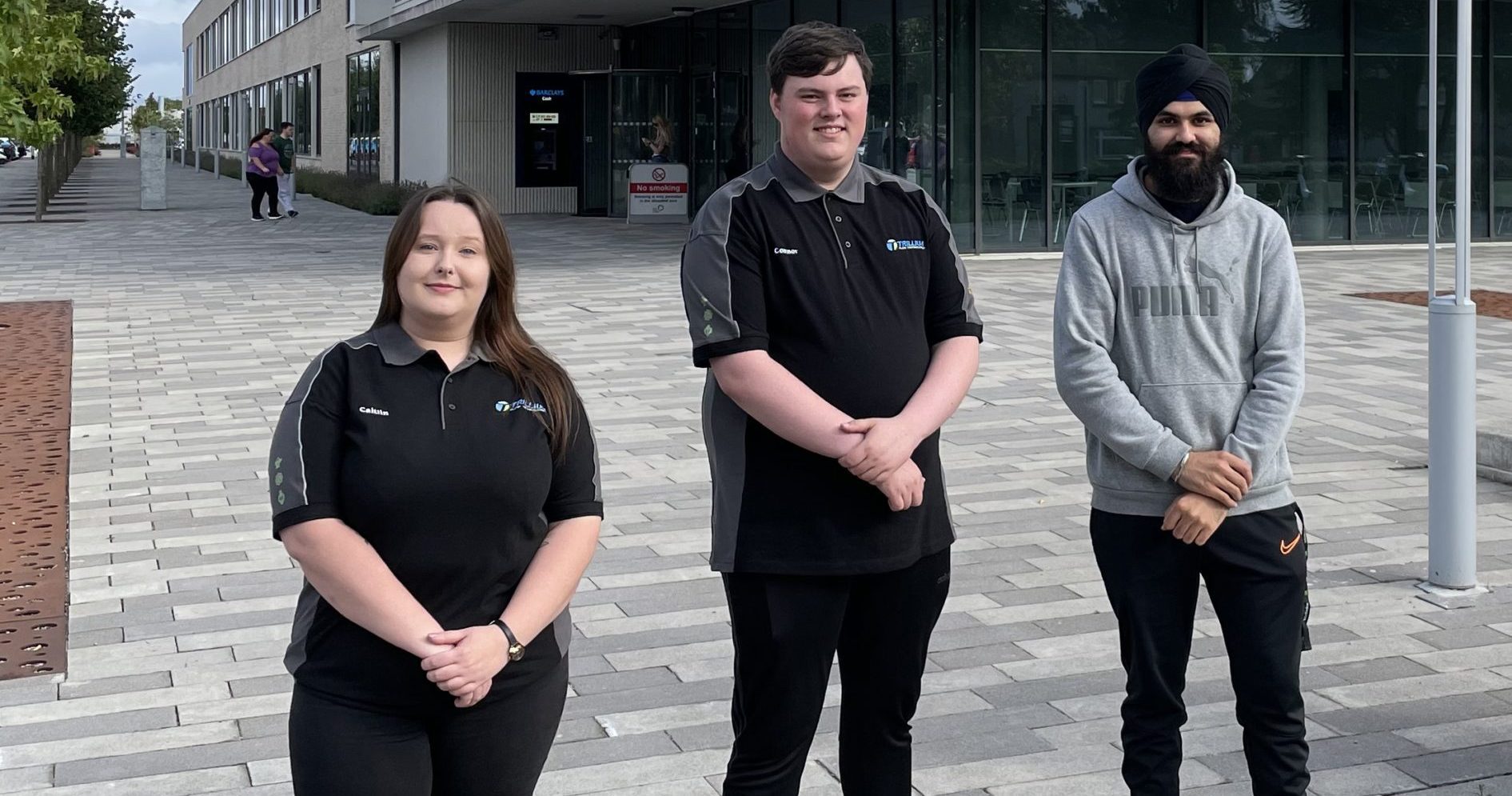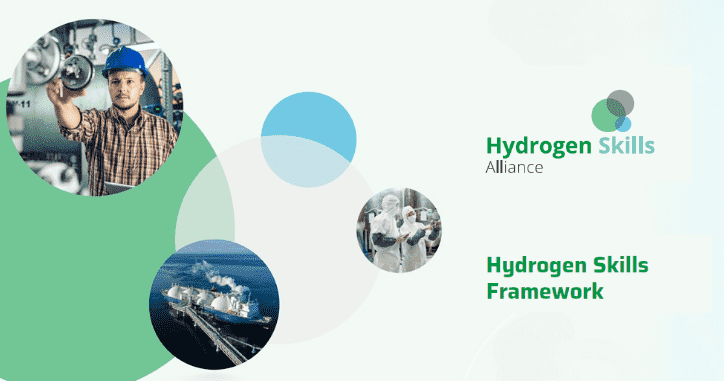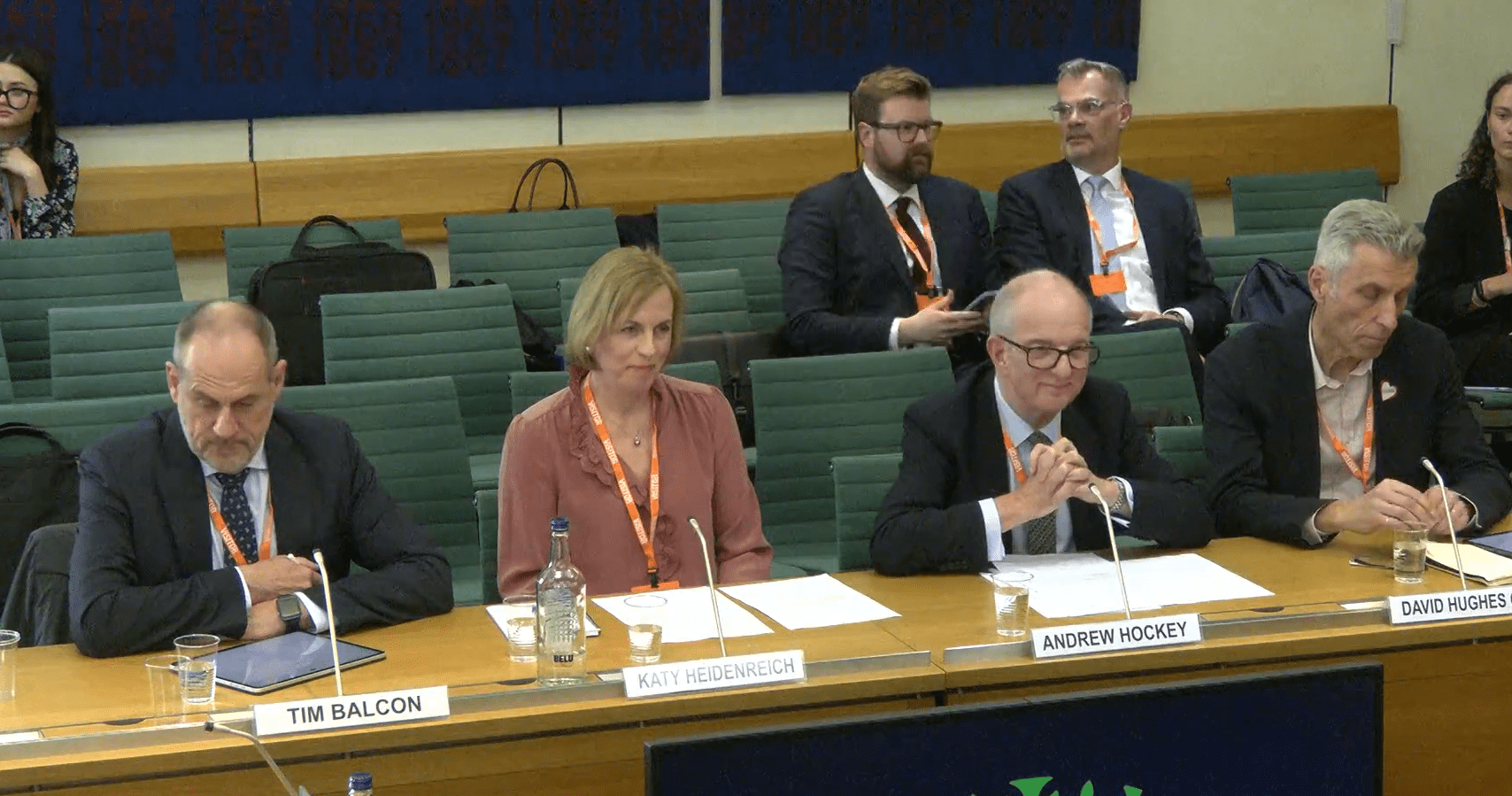Three exceptional young ECITB Scholars are on their way to becoming the next generation of engineers as they take up prestigious apprenticeship positions with global firm Trillium Flow Technologies this week.
Caitlin Hodge, Paramvir Deerhe, and Connor Kenny had just completed the first year of the ECITB scholarship at Forth Valley College when their talents were recognised by a team from the Alloa-based firm. The trio were part of the ECITB Scholarship, a scheme created by the Government skills body to address workforce shortages in key engineering construction roles. The scholarship gives learners the opportunity to get industrial knowledge, skills and qualifications that are in demand in their region while earning £100 a week.
Caitlin Hodge (pic left) said: “I believe the scholarship was really good because the ECITB’s connections help you to make relationships with employers which is great to get into the workplace.”
Paramvir Deerhe (right) said: “The Scholarship course was good because employers want practical experience and theoretical knowledge and it does both well.”
Connor Kennedy (middle) said: “The ECITB Scholarship was very helpful. It allowed us to gain engineering experience and get a grasp of the industry from lecturers at college and was really useful in helping us get apprenticeships at the end.”
The ECITB Scholarship has already prepared 260 scholars for careers in the engineering construction industry since its launch in 2020 and more than 100 Scholars are set to start on the UK-wide programme in September.
Adrian Wookey, ECITB Head of New Entrants, said: “The success of Caitlin, Paramvir and Connor is a great example of employers and training providers collaborating to directly address demand for new entrants to meet the ever-growing skills demands of industry.
“ECITB invited representatives of Trillium Flow Technologies to meet the students while they were studying at Forth Valley College. They were so impressed with the calibre of the trainees, as well as the Scholarship facilities and training on offer, that a reciprocal visit to the Trillium offices was arranged. Following the visit, the students were encouraged to apply for a place on the company’s hugely successful apprenticeship programme.”
Over the next four years, Caitlin, Paramvir, and Connor will undertake a multi-skilled EAL pathway, during which they will spend periods of time working within different areas of the business, exposing them to rotating equipment such as pumps, turbines and motors, as well as valves, actuators and controllers.
They will also have an opportunity to go onto a nuclear power station as part of the outage team and complete secondments in quality, reverse engineering and contracts.
Josh Mortimer, UK Training and development Manager for Trillium, said it was a long-standing ethos of the company to train today in order to reap the rewards in the future.
“Trillium Flow Technologies, formerly Weir Pumps, has been offering Apprenticeships in a range of disciplines for more than 100 years,” he said.
“When we interviewed Caitlin, Paramvir and Connor, we were very impressed with their engineering knowledge, their desire and determination to progress their knowledge and careers, and their personalities. They were all excellent candidates, and we are very much looking forward to welcoming them on board.”
Caroline Hogg, Client Manager, Forth Valley College, said: “We are delighted to have been the first college in Scotland to deliver the ECITB Scholarship Programme.
“It has been hugely successful, resulting in candidates having the knowledge and skills to continue onto apprenticeships with well-respected employers such as Trillium. Trillium have been very supportive of this programme, and we look forward to enhancing this partnership to ensure we continue to train their next generation of engineers.”
The ECITB Scholarship was created to provide a pipeline of new talent into industry while employers rebound from the economic impact of the Covid-19 crisis. Training providers across England, Scotland and Wales deliver scholarship courses that focus on regional skills shortages from mechanical and electrical engineering to wind turbine technicians.





